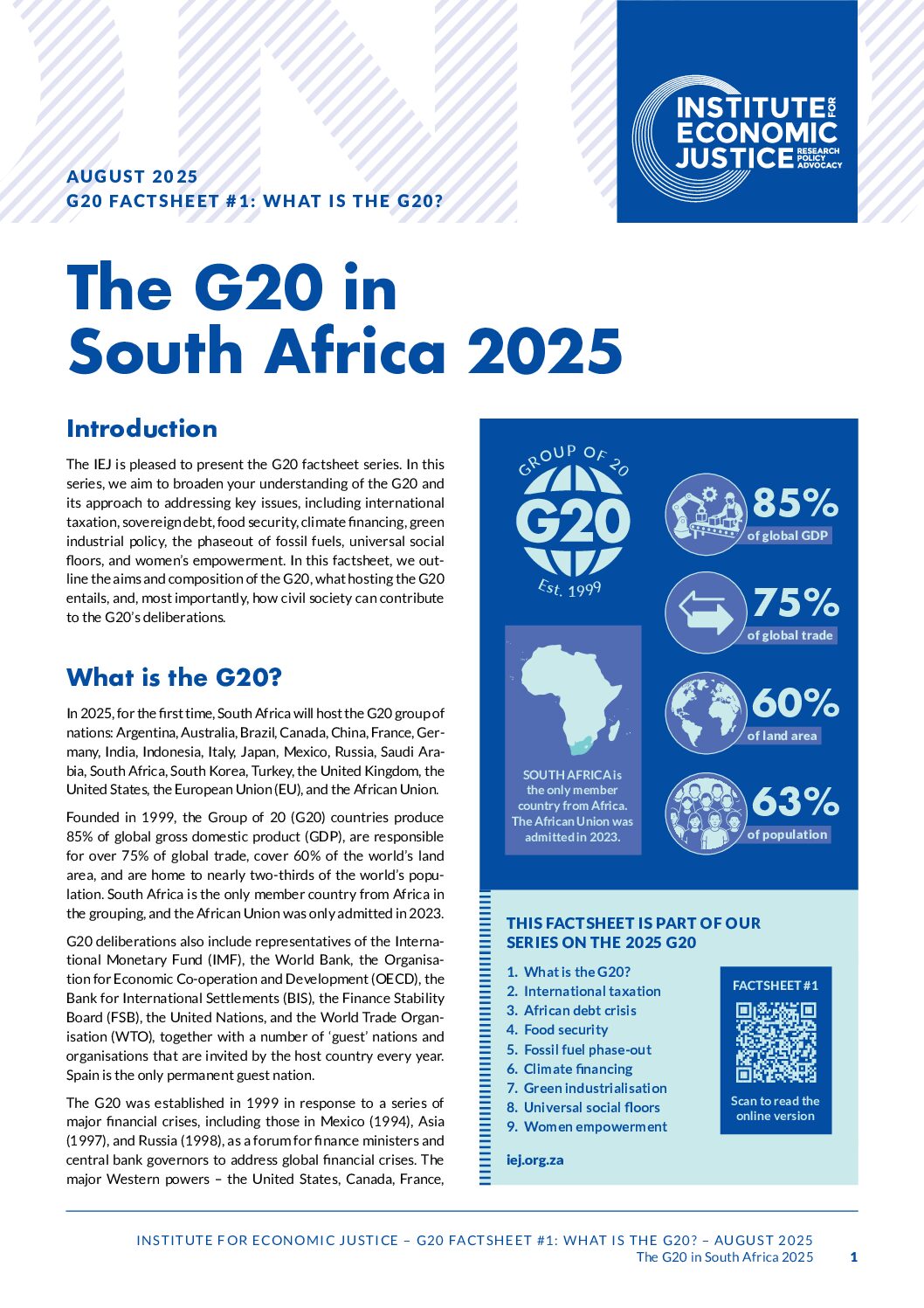The Institute for Economic Justice (IEJ) is pleased to present the G20 fact sheet series. This series aims to broaden understanding of the G20 and its approach to addressing key issues, including international taxation, sovereign debt, food security, climate financing, green industrial policy, the phase-out of fossil fuels, universal social floors, and women’s empowerment. This fact sheet outlines the aims and composition of the G20, what hosting the G20 entails, and, importantly, how civil society can contribute to the G20’s deliberations.
What is the G20?
In 2025, South Africa will host the G20 group of nations for the first time. The G20 includes Argentina, Australia, Brazil, Canada, China, France, Germany, India, Indonesia, Italy, Japan, Mexico, Russia, Saudi Arabia, South Africa, South Korea, Turkey, the United Kingdom, the United States, the European Union (EU), and the African Union.
Founded in 1999, the Group of 20 (G20) countries produce 85% of global gross domestic product (GDP), are responsible for over 75% of global trade, cover 60% of the world’s land area, and are home to nearly two-thirds of the world’s population. South Africa is the only member country from Africa in the grouping, and the African Union was admitted in 2023.
Learn more
Explore the full findings and recommendations in the IEJ’s G20 Introductory Factsheet.
Other factsheets in the 2025 G20 series include:
- International taxation
- African debt crisis
- Food security
- Fossil phase out
- Climate financing
- Green industrialisation
- Universal social floors
- Women empowerment

